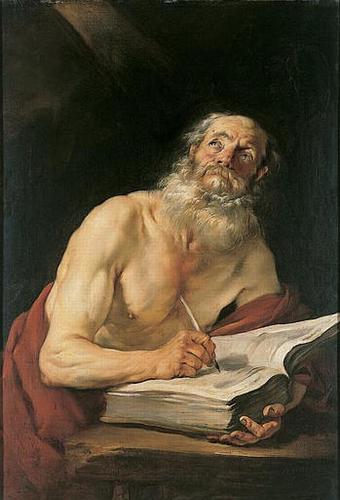Spiritual Sunday
I share today an excerpt from a new biography on Denise Levertov. Author Dana Greene, a former colleague, is interested in how Levertov turned to poetry when she was deciding whether or not to convert to Catholicism (she was raised atheist). Like her poetry, her spiritual wrestling is faith at its best: an open-hearted search rather than a flight into orthodoxy. Even though she didn’t agree with all that the Catholic Church preached—for instance, Dana notes that she felt no remorse for her own abortion—in the end she found God to be bigger than His/Her preachers.
By Dana Greene, excerpt from Denise Levertov: A Poet’s Life
Levertov’s most pressing theological question was about free will and God’s nonintervention in a suffering world. Initially she admitted she could not resolve this paradox, but she came to find a way through:
I began to see these stumbling blocks as absurd. Why, when the very fact of life itself, of the existence of anything at all, is so astounding, why—I asked myself—should I withhold my belief in God or in the claims of Christianity until I am able to explain to myself the discrepancy between the suffering of the innocent, on the one hand, and the assertions that God is just and merciful on the other? Why should I for a moment suppose that I or any human mind can comprehend paradoxes too vast to fit our mental capacities and thus, never perceived in their entirety?
Levertov continued to explore these issues with friends. She told Bodo that she thought of God as an artist, one who created humans with freedom. If God exercised omnipotence and eliminated human choice, then God’s joy in human achievement would also be nullified…
Some years later she was able to deal with her confusion by means of images given her in the process of writing poetry. Imagination was not only the key to poem-making and peacemaking but to theological understanding as well. She explained this connection: “As to my more substantial stumbling block, the suffering of the innocent and the consequent question of God’s nonintervention, which troubled me less in relation to individual instances than in regard to the global panorama of oppression and violence, it was through poetry—through images given me by creative imagination while pondering this matter—that I worked through to a theological explanation which satisfied me.”
In her work as a poet and as a Christian, imagination was a key. She wrote in her diary: “[W]hen I’m following the road of imagination…in the word-by-word, line-by-line decisions of a poem in the making, I’ve come to see certain analogies, and also some interaction, between the journey of art and the journey of faith.
* * * * *
Dana notes that Levertov’s poem “Making Peace acts out the process that Levertov describes in her diary. While not overtly religious, it shows that a poet finding peace through the imagination is akin to how we find God through prayer. The way we find peace in the world is through practicing it in our lives.
Making Peace
By Denise Levertov
A voice from the dark called out,
“The poets must give us
imagination of peace, to oust the intense, familiar
imagination of disaster. Peace, not only
the absence of war.”
But peace, like a poem,
is not there ahead of itself,
can’t be imagined before it is made,
can’t be known except
in the words of its making,
grammar of justice,
syntax of mutual aid.
A feeling towards it,
dimly sensing a rhythm, is all we have
until we begin to utter its metaphors,
learning them as we speak.
A line of peace might appear
if we restructured the sentence our lives are making,
revoked its reaffirmation of profit and power,
questioned our needs, allowed
long pauses. . . .
A cadence of peace might balance its weight
on that different fulcrum; peace, a presence,
an energy field more intense than war,
might pulse then,
stanza by stanza into the world,
each act of living
one of its words, each word
a vibration of light—facets
of the forming crystal.
from Breathing the Water. New Directions, 1987


